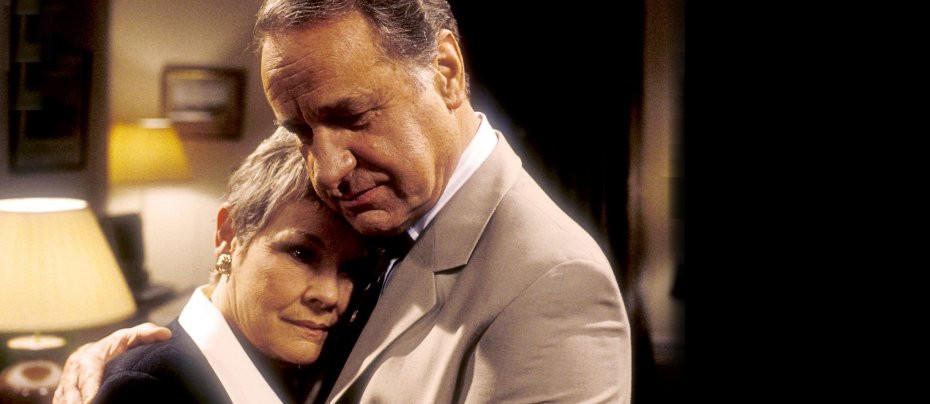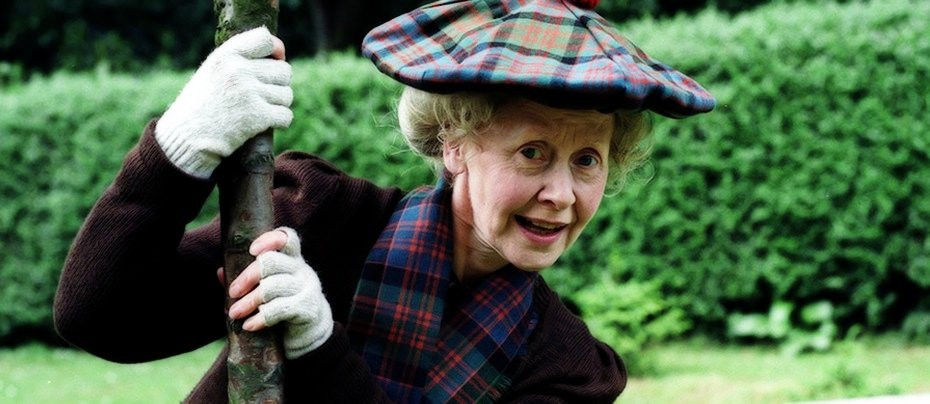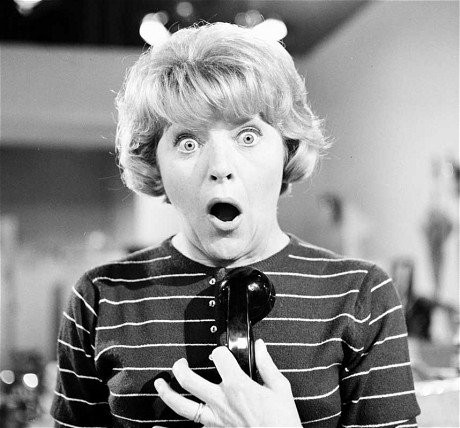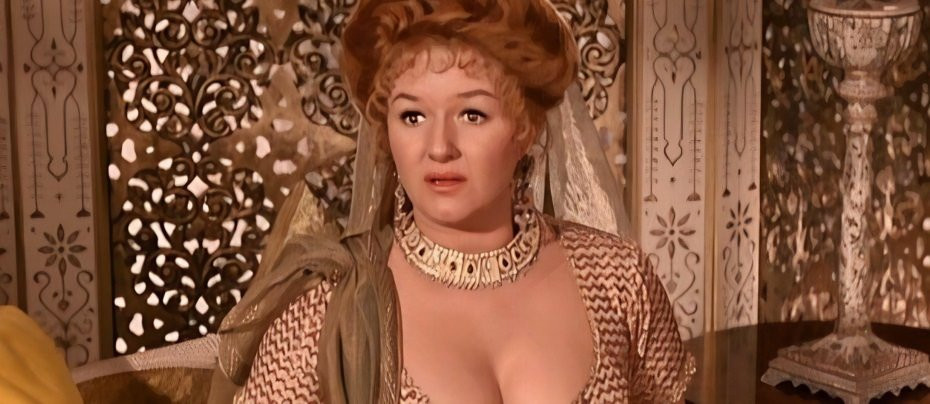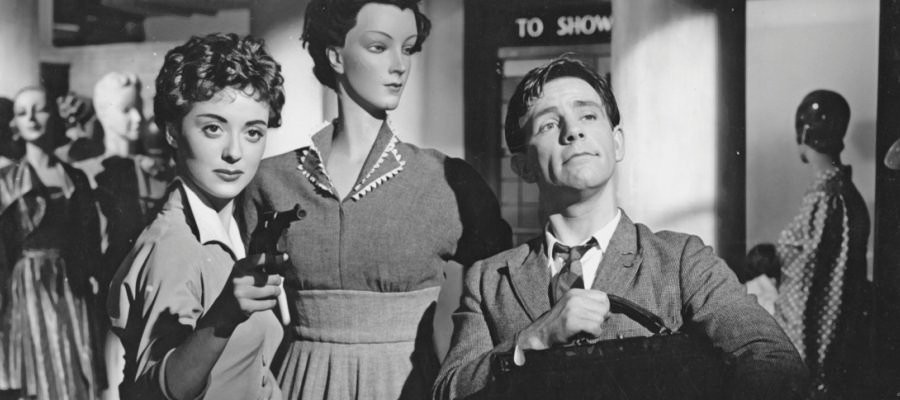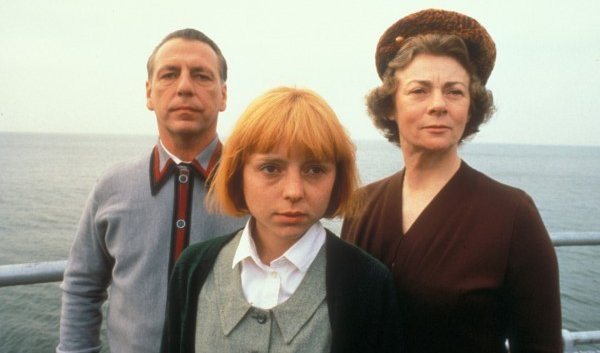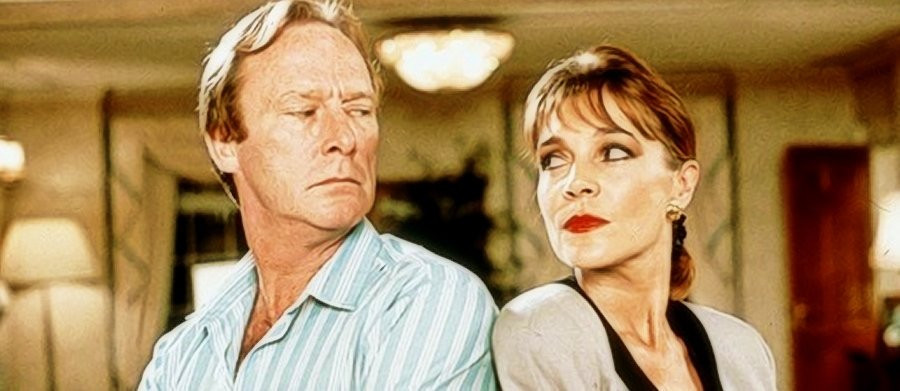
On the Up
1990 - United KingdomWhen Bob Larbey and his writing partner John Esmonde tackled the class divide in The Good Life they could never have imagined its phenomenal success. Such was the show’s glowing reception that it was unsurprising that when Larbey turned his hand to solo comedy writing in 1991, he revisited the divisions between the wealthy higher classes and the ordinary working man in the Dennis Waterman comedy On the Up.
The Good Life focussed on hard working self-sufficient Tom and Barbara Good trying to carve a life for themselves in a posh road in Surbiton. In On the Up, lead character Tony Carpenter, played by Waterman, has already made his fortune. He has turned his minicab business into a successful luxury car one and in the process become wealthy far beyond his expectations. The problem he has found is that even though his increased wealth and success is supposed to have reflected a life being on the up, he isn’t actually very comfortable with a life of almost limitless financial luxuries.
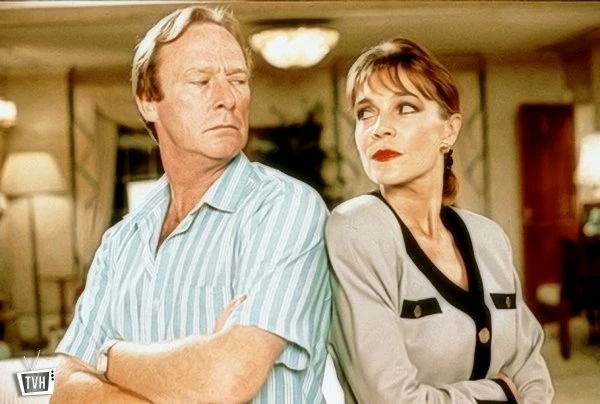
Tony lives in a mansion with – intermittently - his wife Ruth, played Judy Buxton, wife of sitcom legend Jeffrey Holland. In direct contrast to Tony, Ruth loves the wealth in her world and dislikes anything that doesn’t belong there. The problem is that Tony believes he doesn’t belong in the high society circles that Ruth moves in, and most of the time she agrees. His more grounded, human qualities show weakness to her and so the pair are consistently falling out as she walks out and heads immediately to her default walking out venue, Claridge’s.
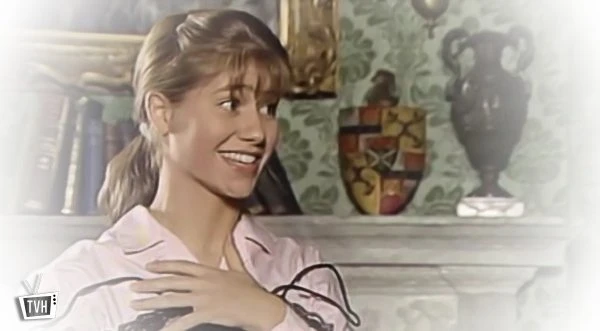
With such marital strife, Tony needs support in his life. It is unlikely to come from his daughter, who is away at boarding school, another place where Tony feels he does not belong. So for his emotional outlet, he turns to his staff. His employees provide more familial support to him than his actual family and so he finds it very difficult to treat them with the same master/servant manner that Ruth feels is appropriate.

Chief staff member is Sam Jones, played by Sam Kelly. Sam is a friend from school who has seen Tony through his rise up the social and financial ladders and knows full well of Tony’s uncomfortable feelings towards his world of riches. He’s full of advice for his friend and boss, helping keep his moral compass pointing in the right direction.
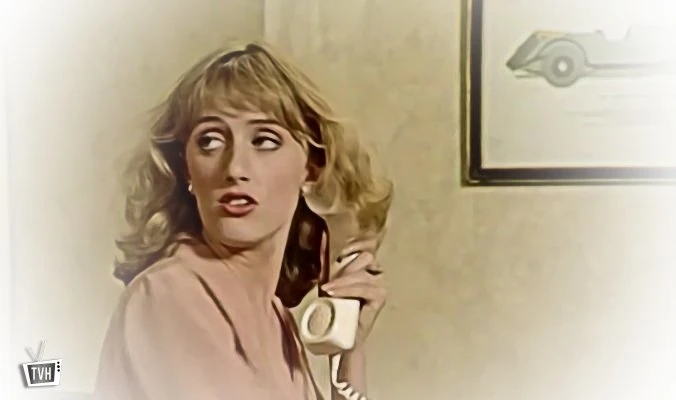
Keeping the paperwork sorted is Maggie (Jenna Russell). She does the office work from the mansion and is viewed suspiciously by Ruth, who believes Maggie carries a flame for her husband.
Chief helper of all is the home’s cook, played so memorably by the wonderful Joan Sims. Fiona Wembley is the mother hen of the house, the go to lady with personal problems, and is happy to embrace the role, particularly for Tony. She ploughs more time in her emotional support than she does her cooking, but always has time for her sherry, or whatever else might be open, spawning the show’s popular catchphrase, ‘just the one, Mrs Wembley.’
At the start of the first series we don’t have to wait long to see the dynamic in the show. Ruth is throwing a tantrum and heading for the exit from the word go, arguing over who gets the horse and demanding that Sam open the door to allow her to storm off. Arguments ensue over who gets the BMW and Tony is convinced that this time she is gone for good, given that she has hurled a car jack through the window.
The staff are not too disappointed that Ruth is gone. She treats them as minions, with little respect and more than a degree of contempt, frustrated as she is that Tony treats them as equals when her standing demands that they be nothing of the kind.
In addition to the staff is Tony’s mother, who far from feeling pleased that her son has achieved such success, instead sees him as having sold out his origins. She is horrified when after being taken ill she is placed in a private hospital and immediately demands to be discharged to an NHS one. The only person seemingly prepared to do battle with her is ironically Ruth, one of the only attributes the staff admire in her.
On the Up follows a familiar pattern. Tony and Ruth are constantly making up and falling out, Tony is permanently uncomfortable with life among the rich and the staff are always trying to keep him pointing in the right direction and although a fourth series was rumoured, the conclusion of series three neatly wraps the characters’ destinies.
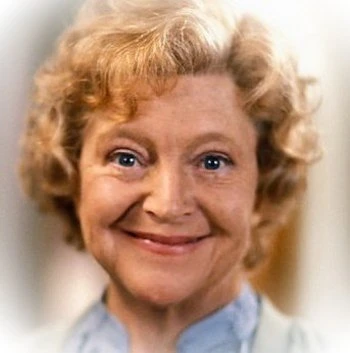
Despite seeming to be a vehicle intended to be built around Waterman, better known of course for his more roguish roles in The Sweeney and Minder, his character and that of his constant tormentor Ruth do not carry a lot of comedic value. On the Up could have sunk without trace but for the fact that the supporting players add so much to the programme. Kelly delivers his judgemental put downs and sarcastic responses, in particular to Ruth, with aplomb and gains far more laughs than the other characters. Dora Bryan and in the second and third series Pauline Letts are feisty as Tony’s combative Mum, but without doubt the show is stolen my Sims. Her portrayal of Mrs Wembley offers comedy and heart to a role that could have been too bland in less talented hands.

On the Up doesn’t hit the heights that The Good Life did, but it performed solidly enough in the ratings for the BBC. It has some fine put-downs as it deals with the clash of classes and even if some of its storylines are a little thin, there always has to be a place in Television Heaven for the wonderful Joan Sims, who as she always did with her Carry On roles takes something that could have been quite ordinary and lifts On the Up into something more special.
Review - Brian Slade
Born and raised in Dorset, Brian Slade turned his back on a twenty-five-year career in IT in order to satisfy his writing passions. After success with magazine articles and smaller biographical pieces, he published his first full-length work, `Simon Cadell: The Authorised Biography'.
Brian is a devoted fan of the comedy stars of yesteryear, citing Eric Morecambe, Ken Dodd, Harpo Marx and Dudley Moore amongst his personal favourites. He was drawn to the story of Simon Cadell through not only `Hi-de-hi!' but also `Life Without George', a programme he identified with having grown up in the Thatcher era.
Seen this show? How do you rate it?
Seen this show? How do you rate it?
Published on February 8th, 2021. Written by Brian Slade for Television Heaven.



